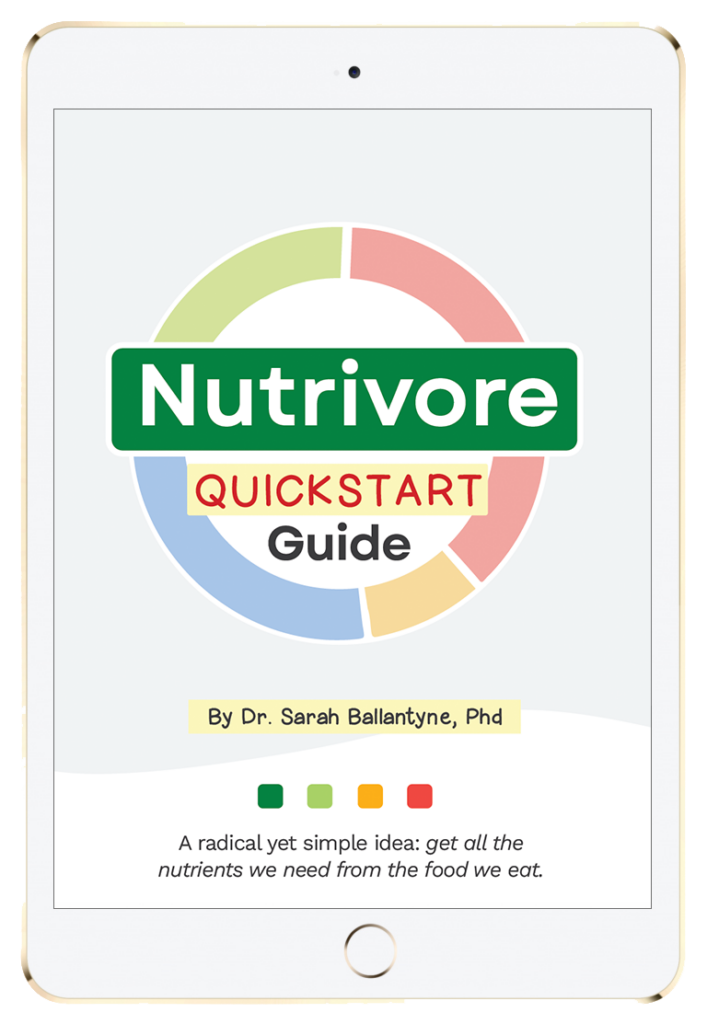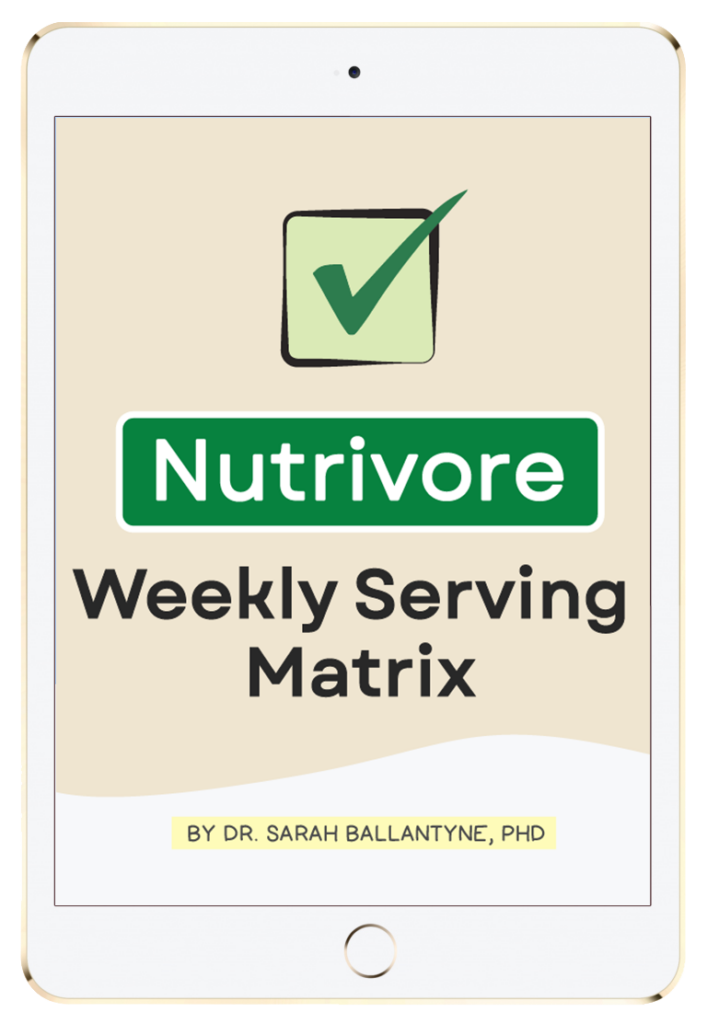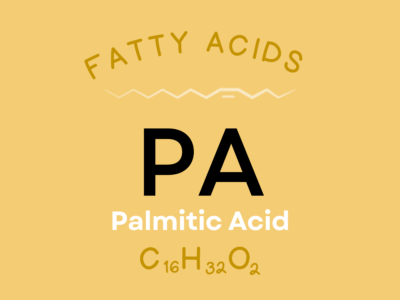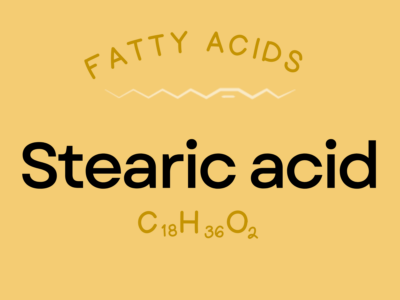Have Scientific Studies Redeemed Saturated Fats?
There are few nutrients as controversial as saturated fat. For decades, we’ve been warned that saturated fat is a dangerous substance capable of raising our cholesterol, clogging our arteries, and sending us to an early grave. But then, a major 2010 meta-analysis pooled the available research and found “no significant evidence” for connection between saturated fat intake and coronary heart disease, stoke or total cardiovascular disease. A large 2015 meta-analysis further showed no association between saturated fat intake and all-cause mortality, cardiovascular disease mortality, coronary heart disease, ischemic stroke, or type 2 diabetes. A 2016 meta-analysis showed that butter had an overall very minor to neutral impact on all-cause mortality, cardiovascular disease and type 2 diabetes, suggesting no need to emphasize either increasing or decreasing butter consumption within dietary guidelines. And a 2020 meta-analysis showed that dietary saturated fat reduces stroke risk; for every 10 grams per day of saturated fat, risk of stroke decreased by 6%. As a result of these and similar studies, some health-conscious communities have gone all-in on saturated fat, while others still fear it.
However, not all studies show a neutral health impact from saturated fats. For example, a 2021 meta-analysis showed a non-linear relationship between all-cause mortality and saturated fat intake, plateauing above 11% of calories coming from saturated fats. This study highlighted an increased cancer mortality risk with consumption of saturated fats; for every 5% of total calories coming from saturated fats, cancer-related deaths increased by 4%.
This all leads us to the question: Are high intakes of saturated fat good or bad? Or, is this a case where moderation is really the best strategy?
Everything You Need to Jump into Nutrivore TODAY!

Nutrivore Quickstart Guide
The Nutrivore Quickstart Guide e-book explains why and how to eat a Nutrivore diet, introduces the Nutrivore Score, gives a comprehensive tour of the full range of essential and important nutrients!
Plus, you’ll find the Top 100 Nutrivore Score Foods, analysis of food groups, practical tips to increase the nutrient density of your diet, and look-up tables for the Nutrivore Score of over 700 foods.
Buy now for instant digital access.
Is It STILL Beneficial To Moderate Saturated Fat?
While the current USDA Dietary Guidelines for Americans recommend limiting saturated fat intake to 10% of total calories or less, this threshold has been widely criticized for not accurately reflecting the current state of scientific evidence.
Certainly, consuming more monounsaturated fats, especially heart-health oleic acid (abundant in olives, avocados and their oils) reduces cardiovascular disease risk. In fact, these healthy fats and oils are Foundational Foods on Nutrivore. That being said, the benefits of consuming more monounsaturated fats doesn’t automatically imply harm to consuming saturated fats.
While the data is much more mixed, there’s also some evidence that consuming more polyunsaturated fats might also be beneficial. For example, a 2010 meta-analysis evaluated the potential benefits of replacing dietary saturated fat with polyunsaturated fats and showed that replacing 5% of total calories worth of saturated fats with polyunsaturated reduced coronary heart disease by 10%, although this study has been criticized. A 2021 meta-analysis showed that replacing dietary saturated fat with polyunsaturated fat may be even more helpful for reducing cardiovascular disease risk people with type 2 diabetes, although the authors highlight the low quality of evidence and the need for more studies on this topic. And, linoleic acid has a potent cholesterol-lowering effect via several mechanisms: increasing bile acid production and cholesterol breakdown, upregulating the LDL receptor, moving LDL cholesterol out from the blood and into body tissues, and decreasing the conversion of very low density lipoprotein (VLDL) to LDL.
It’s also worth noting that high saturated fat intake negatively impacts gut health. In mice, diets containing high amounts of saturated fat (from palm oil) cause an overflow of fat into the distal intestine, leading to an increase in the Firmicutes-to-Bacteroidetes ratio (which is associated with obesity). Even though we’re not mice, a similar effect can likely occur in humans and lead to harmful changes in mucosal gene expression. In fact, some research in humans has correlated gut dysbiosis and obesity-promoting gut microbiomes with diets high in saturated fat and low in fiber. Saturated fat also has a well-established role in increasing gut permeability. In a study of mice fed different high-fat diets (60% fat) emphasizing saturated fat, omega-3 fats, or omega-6 fats, the saturated fat diet was the only one to increase intestinal permeability, largely driven by a rise in hydrogen sulfide-producing bacteria.
One way that people reduce saturated fat intake is with an overall low-fat diet, however swinging the pendulum to the other extreme also isn’t healthful. Low-fat diets in conjunction with low levels of serum cholesterol (which tend to go hand-in-hand) have been linked to a variety of health conditions, including depression and suicide (low-fat diets may impair serotonin receptors by decreasing the fats in nerve-cell membranes), anxiety, aggression, other violent behavior, premature death, and even cancer (fat and cholesterol are important for the integrity of cell membranes). The Accepted Macronutrient Distribution Ranges (AMDR) for fat is 20% to 35% of total energy.
However, there is one group of people who do seem to benefit from moderate saturated fat intake, those with ApoE4 genes.
ApoE4 Carriers
Even though saturated fat has pretty much been redeemed on the heart disease front, there’s one subset of the population that might genuinely need to limit their intake for the sake of heart-health: ApoE4 carriers!
The ApoE lipoprotein (coded by the ApoE gene) plays a major role in metabolizing and transporting cholesterol and saturated fat. All of us have two copies of the ApoE gene, which can be a combination of any of three variants: ApoE2, ApoE3, or ApoE4. While ApoE2 and ApoE3 carriers generally don’t have a noteworthy response to eating saturated fat, it turns out that ApoE4 carriers are a different story!
A number of studies show that compared to the other variants, ApoE4 carriers see a much higher spike in LDL cholesterol from eating large amounts of saturated fat (without a rise in HDL to match). And, they’re the group most likely to benefit from lower-saturated-fat diets, since decreasing their saturated fat intake causes a sharp decline in LDL cholesterol and an improvement in the HDL/LDL ratio (non-E4 carriers usually don’t see that ratio improve from going on a low-fat diet).
The scary news about ApoE4 is that for people who are born with at least one copy (about 20% of the population), the risk of heart disease (as well as Alzheimer’s disease) is much higher than the rest of the population. So, managing heart health should be on the forefront of these people’s minds… which means being conservative with saturated fat intake, and not going gung-ho on things like buttered coffee and tons of bacon. (To find out if you’re an ApoE4 carrier, a number of genetic testing services are available. Your doctor may be able to order an ApoE test for you as well, especially if you have a family history of heart disease and Alzheimer’s disease.)
People with familial hypercholesterolemia are also often advised to consume a low-saturated fat diet; however, in this case, the evidence for benefit is lacking. See for example this 2021 review.
Nutrivore Is a Game-Changer—This FREE Guide Shows You Why
Sign up for the free Nutrivore Newsletter, your weekly, science-backed guide to improving health through nutrient-rich foods — without dieting harder —and get the Beginner’s Guide to Nutrivore delivered straight to your inbox!

What Really Matters: Stearic to Palmitic Acid Ratio
A number of studies have been conducted specifically on the effects of stearic acid versus palmitic acid, given these two fats’ dietary abundance and the significant differences in how they affect blood cholesterol. Human trials have shown that when palmitic acid replaces stearic acid in the diet, fasting LDL levels go up, whereas when stearic acid replaces dietary palmitic acid, fasting LDL levels go down. One trial of postmenopausal women tested the effects of diets enriched with stearic acid, palmitic acid, or oleic acid, and found that stearic acid had similar effects as oleic acid when it came to fasting LDL levels, whereas palmitic acid had less favorable LDL-raising effects compared to the other two fatty acids.
What’s more, these fats also differentially impact the blood lipid landscape immediately after eating—a phase called the “postprandial period.” Given that we spend the majority of the day in a postprandial state rather than a fasted state (because each meal we eat leads to physiological changes lasting many hours, during which our bodies adapt to the influx of nutrients!), postprandial blood lipids can actually have a significant impact on cardiovascular risk, and are just as valuable to study as fasting blood lipids. One randomized crossover trial fed participants diets rich in stearic acid or palmitic acid for four weeks each, and found that participants’ post-meal triglyceride levels and apolipoprotein B48 levels (a marker of intestinal chylomicrons) were significantly lower after the stearic acid diet period than the palmitic acid diet period.
Palmitic Acid
Palmitic acid is a long-chain saturated fatty acid that serves as a major energy source, both due to its abundance in our diet and its storage in our fat tissue. It has the most potent LDL-raising capacity out of all the saturated fats, and has cellular signaling functions that can promote inflammation, metabolic dysfunction, tumor growth, and neurological harm. As a result, excess consumption may raise the risk of cardiovascular disease, diabetes, certain cancers, obesity, and neurodegenerative diseases like Alzheimer’s and Parkinson’s.
Stearic Acid
Stearic acid is a long-chain fatty acid abundant in the modern diet; it can be partially converted to the monounsaturated fat oleic acid. Unlike most other saturated fats, stearic acid doesn’t raise (and might even slightly lower!) LDL cholesterol levels, and has an overall neutral effect on most cardiovascular risk factors. It also acts as a signaling molecule affecting mitochondrial function and lipid oxidation, potentially giving it a protective role in nervous system diseases, muscular disorders, and even aging. It’s also demonstrated some anti-cancer activity, although more research is needed in humans.
Easily track your servings of Nutrivore Foundational Foods!

The Nutrivore Weekly Serving Matrix
The Nutrivore Weekly Serving Matrix digital resource is an easy-to-use and flexible weekly checklist designed to help you maximize nutrient-density and meet serving suggestions of Nutrivore foundational foods, all without having to weigh or measure your foods!
Includes a 22-page instructional guide and downloadable interactive guides.
Buy now for instant digital access.
Help me to keep building Nutrivore.com

This is such a fascinating topic and I’m working on writing a more in-depth version of this article. If you’re enjoying the content my team and I have created thus far and would like to see more, you can support our efforts to keep building out this site by joining the Nutrivore community on Patreon!
Plus every month, you’ll gain exclusive and early access to a variety of resources, including a weekly video podcast, a new e-book in a series, nutrient fun factsheet, and more! Sign up now and also get 5 free Nutrivore guides as a welcome gift! Win-win-win!
Citations
Expand to see all scientific references for this article.
Caesar R, Tremaroli V, Kovatcheva-Datchary P, Cani PD, Bäckhed F. Crosstalk between Gut Microbiota and Dietary Lipids Aggravates WAT Inflammation through TLR Signaling. Cell Metab. 2015 Oct 6;22(4):658-68. doi: 10.1016/j.cmet.2015.07.026.
Campos H, D’Agostino M, Ordovás JM. Gene-diet interactions and plasma lipoproteins: role of apolipoprotein E and habitual saturated fat intake. Genet Epidemiol. 2001 Jan;20(1):117-128. doi: 10.1002/1098-2272(200101)20:1<117::AID-GEPI10>3.0.CO;2-C.
Cani PD, Neyrinck AM, Fava F, Knauf C, Burcelin RG, Tuohy KM, Gibson GR, Delzenne NM. Selective increases of bifidobacteria in gut microflora improve high-fat-diet-induced diabetes in mice through a mechanism associated with endotoxaemia. Diabetologia. 2007 Nov;50(11):2374-83. doi: 10.1007/s00125-007-0791-0.
Chang AK, Barrett-Connor E, Edelstein S. Low plasma cholesterol predicts an increased risk of lung cancer in elderly women. Prev Med. 1995 Nov;24(6):557-62. doi: 10.1006/pmed.1995.1089. PMID: 8610078.
Corella D, Portolés O, Arriola L, Chirlaque MD, Barrricarte A, Francés F, Huerta JM, Larrañaga N, Martínez C, Martinez-Camblor P, Molina E, Navarro C, Quirós JR, Rodríguez L, Sánchez MJ, Ros E, Sala N, González CA, Moreno-Iribas C. Saturated fat intake and alcohol consumption modulate the association between the APOE polymorphism and risk of future coronary heart disease: a nested case-control study in the Spanish EPIC cohort. J Nutr Biochem. 2011 May;22(5):487-94. doi: 10.1016/j.jnutbio.2010.04.003.
Cox C, Mann J, Sutherland W, Ball M. Individual variation in plasma cholesterol response to dietary saturated fat. BMJ. 1995 Nov 11;311(7015):1260-4. doi: 10.1136/bmj.311.7015.1260. PMID: 7496234; PMCID: PMC2551181.
de Souza RJ, Mente A, Maroleanu A, Cozma AI, Ha V, Kishibe T, Uleryk E, Budylowski P, Schünemann H, Beyene J, Anand SS. Intake of saturated and trans unsaturated fatty acids and risk of all cause mortality, cardiovascular disease, and type 2 diabetes: systematic review and meta-analysis of observational studies. BMJ. 2015 Aug 11;351:h3978. doi: 10.1136/bmj.h3978.
de Wit N, Derrien M, Bosch-Vermeulen H, Oosterink E, Keshtkar S, Duval C, de Vogel-van den Bosch J, Kleerebezem M, Müller M, van der Meer R. Saturated fat stimulates obesity and hepatic steatosis and affects gut microbiota composition by an enhanced overflow of dietary fat to the distal intestine. Am J Physiol Gastrointest Liver Physiol. 2012 Sep 1;303(5):G589-99. doi: 10.1152/ajpgi.00488.2011
Diamond DM, Alabdulgader AA, de Lorgeril M, Harcombe Z, Kendrick M, Malhotra A, O’Neill B, Ravnskov U, Sultan S, Volek JS. Dietary Recommendations for Familial Hypercholesterolaemia: an Evidence-Free Zone. BMJ Evid Based Med. 2021 Dec;26(6):295-301. doi: 10.1136/bmjebm-2020-111412.
Harcombe Z. US dietary guidelines: is saturated fat a nutrient of concern? Br J Sports Med. 2019 Nov;53(22):1393-1396. doi: 10.1136/bjsports-2018-099420.
Hooper L, Martin N, Jimoh OF, Kirk C, Foster E, Abdelhamid AS. Reduction in saturated fat intake for cardiovascular disease. Cochrane Database Syst Rev. 2020 Aug 21;8(8):CD011737. doi: 10.1002/14651858.CD011737.pub3.
Kang ZQ, Yang Y, Xiao B. Dietary saturated fat intake and risk of stroke: Systematic review and dose-response meta-analysis of prospective cohort studies. Nutr Metab Cardiovasc Dis. 2020 Feb 10;30(2):179-189. doi: 10.1016/j.numecd.2019.09.028.
Kim Y, Je Y, Giovannucci EL. Association between dietary fat intake and mortality from all-causes, cardiovascular disease, and cancer: A systematic review and meta-analysis of prospective cohort studies. Clin Nutr. 2021 Mar;40(3):1060-1070. doi: 10.1016/j.clnu.2020.07.007.
Loktionov A, Scollen S, McKeown N, Bingham SA. Gene-nutrient interactions: dietary behaviour associated with high coronary heart disease risk particularly affects serum LDL cholesterol in apolipoprotein E epsilon4-carrying free-living individuals. Br J Nutr. 2000 Dec;84(6):885-90. PMID: 11177205.
Mani V, Hollis JH, Gabler NK. Dietary oil composition differentially modulates intestinal endotoxin transport and postprandial endotoxemia. Nutr Metab (Lond). 2013 Jan 10;10(1):6. doi: 10.1186/1743-7075-10-6. PMID: 23305038
Mänttäri M, Koskinen P, Ehnholm C, Huttunen JK, Manninen V. Apolipoprotein E polymorphism influences the serum cholesterol response to dietary intervention. Metabolism. 1991 Feb;40(2):217-21. doi: 10.1016/0026-0495(91)90179-z.
Meng H, Matthan NR, Wu D, Li L, Rodríguez-Morató J, Cohen R, Galluccio JM, Dolnikowski GG, Lichtenstein AH. Comparison of diets enriched in stearic, oleic, and palmitic acids on inflammation, immune response, cardiometabolic risk factors, and fecal bile acid concentrations in mildly hypercholesterolemic postmenopausal women-randomized crossover trial. Am J Clin Nutr. 2019 Aug 1;110(2):305-315. doi: 10.1093/ajcn/nqz095. PMID: 31179489.
Mozaffarian D, Micha R, Wallace S. Effects on coronary heart disease of increasing polyunsaturated fat in place of saturated fat: a systematic review and meta-analysis of randomized controlled trials. PLoS Med. 2010 Mar 23;7(3):e1000252. doi: 10.1371/journal.pmed.1000252.
Muldoon MF, Kaplan JR, Manuck SB, Mann JJ. Effects of a low-fat diet on brain serotonergic responsivity in cynomolgus monkeys. Biol Psychiatry. 1992 Apr 1;31(7):739-42. doi: 10.1016/0006-3223(92)90285-8.
Nicholls SJ, Lundman P, Harmer JA, Cutri B, Griffiths KA, Rye KA, Barter PJ, Celermajer DS. Consumption of saturated fat impairs the anti-inflammatory properties of high-density lipoproteins and endothelial function. J Am Coll Cardiol. 2006 Aug 15;48(4):715-20. doi: 10.1016/j.jacc.2006.04.080.
Pimpin L, Wu JH, Haskelberg H, Del Gobbo L, Mozaffarian D. Is Butter Back? A Systematic Review and Meta-Analysis of Butter Consumption and Risk of Cardiovascular Disease, Diabetes, and Total Mortality. PLoS One. 2016 Jun 29;11(6):e0158118. doi: 10.1371/journal.pone.0158118.
Schwab U, Reynolds AN, Sallinen T, Rivellese AA, Risérus U. Dietary fat intakes and cardiovascular disease risk in adults with type 2 diabetes: a systematic review and meta-analysis. Eur J Nutr. 2021 Sep;60(6):3355-3363. doi: 10.1007/s00394-021-02507-1.
Szajewska H, Szajewski T. Saturated Fat Controversy: Importance of Systematic Reviews and Meta-analyses. Crit Rev Food Sci Nutr. 2016 Sep 9;56(12):1947-51. doi: 10.1080/10408398.2015.1018037.
Thornley S, Schofield G, Zinn C, Henderson G. How reliable is the statistical evidence for limiting saturated fat intake? A fresh look at the influential Hooper meta-analysis. Intern Med J. 2019 Nov;49(11):1418-1424. doi: 10.1111/imj.14325.
Tikkanen MJ, Huttunen JK, Ehnholm C, Pietinen P. Apolipoprotein E4 homozygosity predisposes to serum cholesterol elevation during high fat diet. Arteriosclerosis. 1990 Mar-Apr;10(2):285-8. doi: 10.1161/01.atv.10.2.285.
van Rooijen MA, Plat J, Zock PL, Blom WAM, Mensink RP. Effects of two consecutive mixed meals high in palmitic acid or stearic acid on 8-h postprandial lipemia and glycemia in healthy-weight and overweight men and postmenopausal women: a randomized controlled trial. Eur J Nutr. 2021 Oct;60(7):3659-3667. doi: 10.1007/s00394-021-02530-2. Epub 2021 Mar 17. PMID: 33733339; PMCID: PMC8437914.




